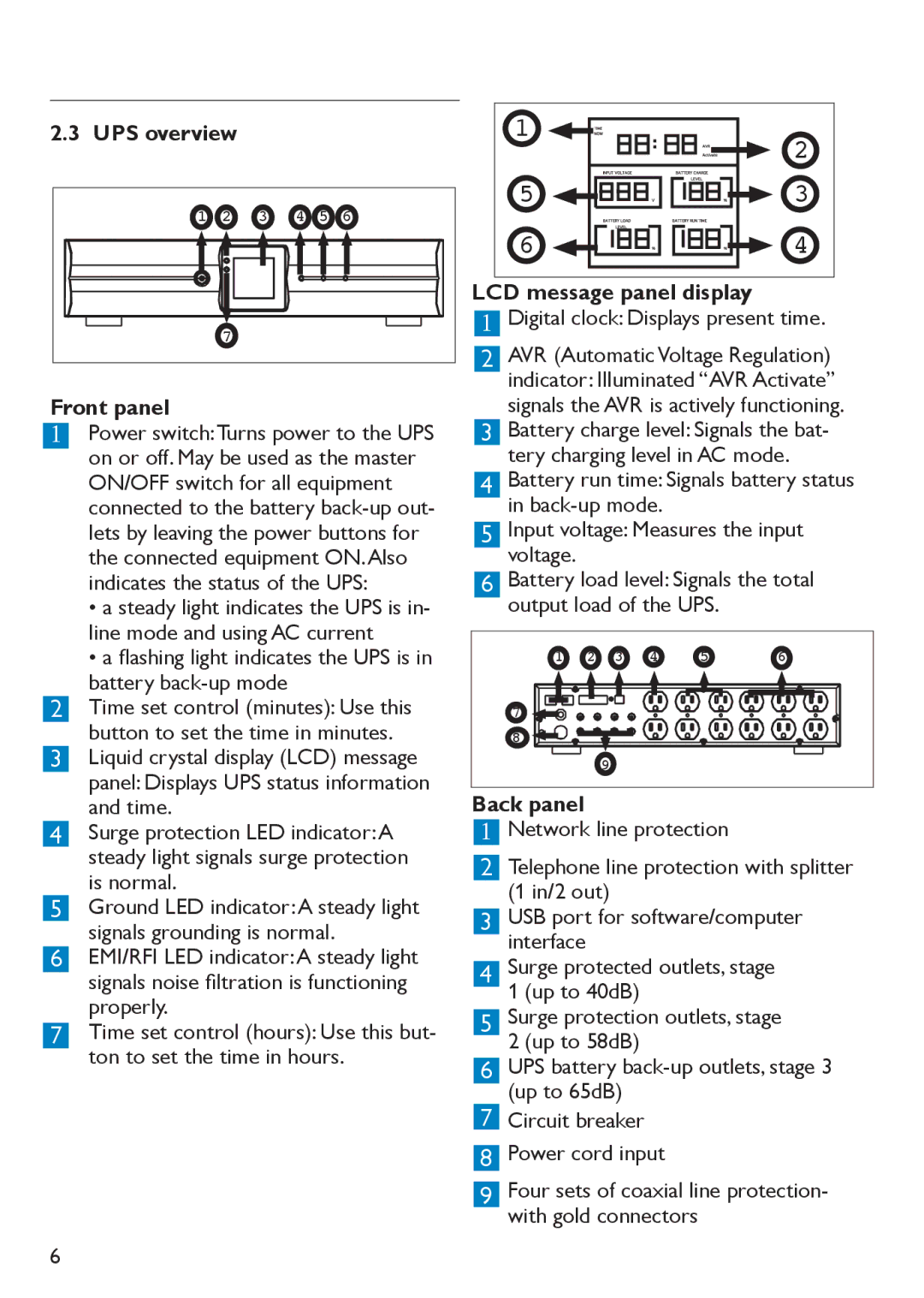
2.3 UPS overview
1 | 2 | 3 | 4 | 5 | 6 |
| 7 |
|
|
|
|
Front panel
1Power switch:Turns power to the UPS on or off. May be used as the master ON/OFF switch for all equipment connected to the battery
•a steady light indicates the UPS is in- line mode and using AC current
•a flashing light indicates the UPS is in battery back-up mode
2Time set control (minutes): Use this button to set the time in minutes.
3Liquid crystal display (LCD) message panel: Displays UPS status information and time.
4Surge protection LED indicator:A steady light signals surge protection is normal.
5Ground LED indicator:A steady light signals grounding is normal.
6EMI/RFI LED indicator:A steady light signals noise filtration is functioning properly.
7Time set control (hours): Use this but- ton to set the time in hours.
1 | 2 |
| |
5 | 3 |
6 | 4 |
LCD message panel display
1Digital clock: Displays present time.
2AVR (Automatic Voltage Regulation) indicator: Illuminated “AVR Activate” signals the AVR is actively functioning.
3Battery charge level: Signals the bat- tery charging level in AC mode.
4Battery run time: Signals battery status in
5Input voltage: Measures the input voltage.
6Battery load level: Signals the total output load of the UPS.
1 | 2 | 3 | 4 | 5 | 6 |
7![]()
8 ![]()
9
Back panel
1Network line protection
2Telephone line protection with splitter (1 in/2 out)
3USB port for software/computer interface
4Surge protected outlets, stage 1 (up to 40dB)
5Surge protection outlets, stage 2 (up to 58dB)
6UPS battery
7Circuit breaker
8 Power cord input
9Four sets of coaxial line protection- with gold connectors
6
